
streaming

streaming
Jazz nostagičara za vremenom kad smo bili višeglasne subatomske čestice. Obvezna lektira.
www.bengoldberg.net/store
Unfold Ordinary Mind
Subatomic Particle Homesick Blues
BAG
Among jazz’s new breed of clarinetists, Don Byron may be the most celebrated stylistic traveler. But over an equally long stretch, Bay Area virtuoso Ben Goldberg has brought his own vision to a daunting range of settings. Having led the pioneering New Klezmer Trio and transformed bebop and folk in Junk Genius, he has more recently made stellar recordings with his Plays Monk trio and the groove-minded Go Home quartet with Charlie Hunter. He has interpreted the poems of e.e. cummings with Tin Hat and dedicated one of his working groups to pop songs by the late Elliott Smith.
Goldberg’s two new albums, released simultaneously on his BAG Production label, reveal yet more sides of his artistic personality. OnUnfold Ordinary Mind, he pulls off a neat trick in assuming the role of bassist on contra-alto clarinet, in a sometimes explosive quintet with guitarist Nels Cline and twin tenors Ellery Eskelin and Rob Sudduth. On Subatomic Particle Homesick Blues, recorded in 2008, he partakes in chamber-style jazz with tenor saxophonist Joshua Redman and trumpeter Ron Miles.
As different as the albums are, they share a keen interest in the juxtaposition of tightly woven harmonies and open structures. “Parallelogram,” the enthralling 11-minute opener on Ordinary Mind, starts off with a gorgeous horn choir intoning a carol-like melody, quickly introduces a component of spiky guitar and clanging percussion and moves back and forth between voicings. Following a pronounced major to minor shift and a subtle application of electronics, the tenor players separate into left and right channels to play off each other over Goldberg’s earthy tones and drummer Ches Smith’s powerful antic strokes. Cline, in scorching, bluesifying form, lifts the music skyward. Kissed by his keening notes, the horn harmonies return and the music abruptly stops, its spell cast.
As powerful a clarinetist as Goldberg is, he is happy to play a supporting role onOrdinary Mind, which with all its sideways energy needs his steadying tones. Eskelin and Sudduth sometimes play like mirror reflections of each other, their individual sounds blending together, sometimes in animated counterpoint. On the soulful groove of “Stemwinder,” Cline’s presence is effectively doubled via overdubbing.
Subatomic Particle Homesick Blues, which features Goldberg on his usual B-flat clarinet, also opens with fetching horn harmonies—and also makes quick stylistic jumps via a charged bop solo by Redman and a trad-like burst by the ensemble. Miles, a longtime crony of Goldberg’s (both hail from Denver), can sound harder-edged here than he does on his own texture-minded albums with Bill Frisell.
But the quartet, featuring Devin Hoff on bass and Smith (or, on two tracks, Scott Amendola) on drums, sustains a relaxed, upbeat feel whether trading contrapuntal lines, offering avant-swing or emulating New Orleans brass bands. There are playful pregnant pauses, feathery melodies and, on an expansive treatment of “A Satisfied Mind,” bluesy assertions of Goldberg’s ongoing involvement in Americana.
With the release of two albums from Ben Goldberg on the same day, I am overwhelmed by a good thing. The fact that I am allowed to own his two 2010 releases feels more like a privilege that just scooping up a pair of consumer goods—like I am allowed an inside peak at high art as it falls together. Classified as a jazz clarinetist for the sake of convenience, Goldberg is one of those Midas musicians who brings all of instrumental music’s best traits to roost under one umbrella. And like many past giants of great jazz, his music is his own. Sure, it has shades of unfluence here and there as most music inevitably will. But the derivative moments are pieces of magically charged homage, easily outnumbered by the highly original ones. And to stand at a critical pulpit and pound the virtues of originality into consumers’s minds is one thing. Is the music any good? Does it make me forget what I want to forget and make me remember things I never knew were there? Can a critic’s darling touch more than just the brain?
Fair questions. The “deep end” isn’t always used as a positive adjective, and experimental tendencies in music often require that you vibrate on the same wavelength as the musicians. As I type this sentence, a track is playing that perfectly typifies these dangers; “I Miss the SLA”. It’s shapeless—let’s call it shape-free—honking, skronking and guitar grrring, and on the wrong day, I won’t know to where it’s pointing (a Google search for SLA gives a few humorous results). But when the angles are just right, it’s what one could get away with calling a beautiful cacophany. When your mind and ears are allowed to open, Goldberg and his pardners can push all the right buttons at the right time. In fact, “I Miss the SLA” is more of an exception than the rule here. Subatomic Particle Homesick Blues and Unfold Ordinary Mind, two different albums recorded by two different ensembles, are both bold but not assertively so. Both albums are a great dance between jazz, funk grooves, noise rock, smokey saxes and the mighty clarinet.
The personnel on both albums is something of a dream team. Subatomic Particle Homesick Blues features Joshua Redman on tenor sax, Ron Miles on trumpet, Devin Hoff on bass and both Scott Amendola and Ches Smith on drums. A note to jazzbos; as the reality sinks in, you’ll realize that Goldberg is playing with both the rhythm sections of Good for Cows and the Nels Cline Singers. Speaking of Nels Cline, one of my favorite masters of the six string provides that just-so distorted edge for Unfold Ordinary Mind. Rounding out the group is Ches Smith, again, and tenor saxophonists Ellery Eskelin and Rob Sudduth. One can spend an entire review of these two albums just name-and-resume-dropping, but that’s convincing only to a point. What matters is what songs Goldberg has brought forth and what all these guys can bring to them.
Subatomic Particle Homesick Blues is the tamer of the two, starting with modern echoes of New Orleans in opener “Evolution”. It’s startling how Ron Miles’s playing hangs in perfect balance with the reeds, like they are moving forward as one instrument. Many melody figures, like on the light-hearted bluesiness of “Ethan’s Song” or the deceptively peppy “Doom”, feature this clarisaxpet as note-perfect examples of how the most successful music can cloud its sources and codes. Subatomic Particle Homesick Blues can sprawl a bit, but never as a form of indulgence. “Who Died and Where I Moved To” is one such shape-shifter that, close to six minutes in length, does not waste its time. When Goldberg’s low reed sneaks up alongside Hoff, the train rolls away like a thief in the night.
And speaking of the E-flat clarinet, you may notice that the second lineup features no bass player. Goldberg provides his own low end here while Eskelin, Sudduth, and Cline color in the rest. Unfold Ordinary Mind is the less ordinary of the two albums, staking its claim as a more aggressive beast within the first track “Elliptical”. This is the album that houses “I Miss the SLA”, but one musn’t think that Nels Cline is unnecessarily dirtying the waters. In fact, Cline has been reluctant to solo excessively on his own albums, saying that he himself would not be interested in noodling as a listener (of his role in Chicago’s Wilco, he even stated “There are too many possibilities in my head, or I’m hearing something in my head that’s familiar or classic rather than iconoclastic. Jeff [Tweedy] often wants iconoclastic.”). Be that as it may, “Parallelogram” socks the rock right to you. If you were to remove the guitar from the overall sound, you would most likely focus on the funky groove within. And as Unfold Ordinary Mind rolls out, it becomes less jazzy and more transcendent. Despite the presence of three reeded instruments, they melt down into a unifying hole that mirrors the scary wind blends of Subatomic Particle Homesick Blues. In other words, Unfold Ordinary Mind is as album that unfolds, quite unordinarily, into a cozy ambiguity that is happy to call itself music and nothing more. Rock edge? You got it. Sultry saxophones? Check. Groove? In the pocket. Avant noise? Track five, my friend. Pensive rubatos on a high wire like thoughts in search of a mind? One song begins that way and another exists in that realm from beginning to end. So what does one call all of this? What type of music is it?
Cue the record scratch. In defense of labeling, I am required to use words to convey just how convincing Ben Goldberg’s two new masterpieces are. On the other hand, categorically compartmentalizing music that glides along this easily might diminish one’s interest. So take the sound of a clarinet, juggle it with trumpet and sax, and try to imagine the best sounds available to these instruments. Throw in a spunky electric guitar, and you’ve got yourself an instrumental cruise line that can outshine your favorite double rock album. Don’t believe me? Give it a try then. - John Garratt
Clarinetist Ben Goldberg sometimes gets so out front with his musical vision, it takes years to catch up with him.Five years ago I was on this space admiring his groundbreaking klezmer jazz work from the 90s with the New Klezmer Trio. About the same time that I was looking back thirteen years, Goldberg has assembled a quintet of some of jazz’s finest to record more barrier busting music that went in a different direction from that Jewish folk music stuff he had been known for. This time, though, he gave his listeners a five year running start, by not releasing these sessions until later this month. Subatomic Particle Homesick Blues, the title for this dusted off project, does absorb quicker, but not far below the surface, he’s taking chances as ever before and landing on his feet every time.
Helping Goldberg’s risk-taking pay off are Joshua Redman on sax, Ron Miles on trumpet, Devin Hoff on bass and Ches Smith handling most of the drums (Scott Amendola replaces Smith for two tracks).
Genius often reveals itself in discreet ways. I’m not one to declare if Goldberg is a genius or not, but there seems to be clever juxtaposition of music that sounds straightforward and music that’s full of intricacies not always instantly noticed. “I was playing a lot of music with a certain level of sophistication and almost intentional obscurity,” admits Goldberg. “Yet I realized that the music that I loved when I was growing up is music that speaks very directly. I wanted to bring the two into alignment.”
That goes a way toward explain what Subatomic Particle Homesick Blues feels like to me. Even the title is a clue: it’s a take off on Bob Dylan’s “Subterranean Homesick Blues,” and Dylan always had a knack for devising the kind of direct and simple folk tunes that became endlessly dissected for clues and revelations. Maybe his own star power had something to do with that but it’s also apparent that Dylan’s songs possess depth that belies the supposed simplicity of folk music.
“Satisfied Mind,” a widely covered tune that Dylan himself once took on, is also taken on by Goldberg for the only non-original of the album. It’s one of the best examples of how Goldberg handles the dichotomy of his goals for this album: the horns say trad jazz, but rhythm section says avant garde with Smith defiantly turbulent. Redman is the first to drift over closer to avant garde side, then Goldberg. But in the end it’s the usually reserved Miles who goes the furthest outside. “Evolution” has a New Orleans Dixieland flavor, but with a deconstructed arrangement. “Ethan’s Song” is also a simple melody played out in an unusual fashion: a slinky groove, Hoff’s bass finishing sentences started by the horns and interaction among the three horns an engaging conversation. It could easily be mistaken for a Bill Frisell song if not for the absence of a guitar. I love what Goldberg did with “Who Died And Where I Moved To”: switching to the much deeper contra alto clarinet, Goldberg plays it in lock step with Hoff in the intro, which leads right into a “Sidewinder” groove.
Goldberg invests a lot into how he, Redman and Miles converse with each other; “Study of the Blues” is only him and Redman, but is fascinating in that there are different interpretations of same song at the precise same points though there is no rhythm section to guide them. “Doom” is a straight bop tune, featuring Goldberg and Mles trading fours and often overlapping each other. Though brief, “Lopse” is astounding for the dissonant but interlocking expressions among three horns, requiring precise coordination. But Goldberg is also crafty in putting together the horn parts to create lovely melodies. For “How To Do Things With Tears,” every detail of the strain is brought out by the individual but simultaneous expressions of the three, while Smith and Hoff ignore time keeping and follows the collective path of the horns.
These are just some of the moments where Ben Goldberg is able to reconcile the pure melodies of his youth with the complexities that mark much of his work. But in the case of Subatomic Particle Homesick Blues, reconciliation does not equate to compromise.
This, by the way, is just one of two albums Ben Goldberg is preparing to release on the same day this month; we’ll survey the more recently recorded Unfold Ordinary Mind companion album next. - by S. Victor Aaron

Junk Genius (1994) streaming
This all started a month ago when I was getting ready to present a colloquium for the Music Department at UCSC. I began listening to all my old records, and amazingly when I expected to cringe instead I found myself enjoying some pretty good music! I heard a spirit, and a heart, in the music, and an agenda of curiosity and exploration that embodied important qualities from my life at those times. One that jumped out in particular was Junk Genius, a record that I made with John Schott, Trevor Dunn, and Kenny Wollesen in 1995.
It’s funny to think that this project originated with John and me wanting to learn some songs to get better at jam sessions! We focused on songs by Bud Powell, Charlie Parker and Dizzy Gillespie -- music of the "bebop" era. Of course what happened next wouldn’t have fit into the kind of jam sessions we originally had in mind – like most creative goals it proved to be a kind of inverse confirmation of Yogi Berra’s famous advice: “You’ve got to be very careful if you don’t know where you’re going, because you might not get there.”
We went at it with hammer and tongs. And discovered, not for the first or last time, that if you are dealing with material this strong, then your attempts to fuck with it result in you yourself being transformed into a vessel for the further beauty and truth of the original vision. And thus, Junk Genius.
While I enjoyed hearing the music again, I also realized that the sound could be improved. So I handed it to none other than Jon Cohrs of Spleenless Mastering in Brooklyn. Jon is reluctant to call what he did a "remastering," since who knows where the master tapes are now, but he did an excellent job and I think you will like the result.
I am happy to be offering this record for the first time in many years as a high-quality digital download exclusively through bandcamp.
I think Molly Barker captured the state of affairs pretty well with her paintin of the enigmatic purple-faced man (menacing? depressed?) for the cover, although Steve Lacy sent a postcard: “I like the music; I do NOT like the title”.
It’s funny to think that this project originated with John and me wanting to learn some songs to get better at jam sessions! We focused on songs by Bud Powell, Charlie Parker and Dizzy Gillespie -- music of the "bebop" era. Of course what happened next wouldn’t have fit into the kind of jam sessions we originally had in mind – like most creative goals it proved to be a kind of inverse confirmation of Yogi Berra’s famous advice: “You’ve got to be very careful if you don’t know where you’re going, because you might not get there.”
We went at it with hammer and tongs. And discovered, not for the first or last time, that if you are dealing with material this strong, then your attempts to fuck with it result in you yourself being transformed into a vessel for the further beauty and truth of the original vision. And thus, Junk Genius.
While I enjoyed hearing the music again, I also realized that the sound could be improved. So I handed it to none other than Jon Cohrs of Spleenless Mastering in Brooklyn. Jon is reluctant to call what he did a "remastering," since who knows where the master tapes are now, but he did an excellent job and I think you will like the result.
I am happy to be offering this record for the first time in many years as a high-quality digital download exclusively through bandcamp.
I think Molly Barker captured the state of affairs pretty well with her paintin of the enigmatic purple-faced man (menacing? depressed?) for the cover, although Steve Lacy sent a postcard: “I like the music; I do NOT like the title”.
credits
released 05 March 2013
Ben Goldberg - clarinet
John Schott - guitar
Trevor Dunn - bass
Kenny Wollesen - drums
Produced by John Schott and Ben Goldberg
Recorded by Jeff Cressman live to two track digital, February 1994 at Annie's Hall, Berkeley, California
Ben Goldberg - clarinet
John Schott - guitar
Trevor Dunn - bass
Kenny Wollesen - drums
Produced by John Schott and Ben Goldberg
Recorded by Jeff Cressman live to two track digital, February 1994 at Annie's Hall, Berkeley, California
Here is an interview with Warren Allen published in All About Jazz. This is highly recommended for an overview of my career and philosophy.
Warren Allen
All About Jazz
March 30, 2010
Go to review
Writing in the San Francisco Chronicle, Andrew Gilbert quotes Carla Kihlstedt: "For me, Ben has been one of the most influential improvisers since I moved to the Bay Area."
Andrew Gilbert
San Francisco Chronicle
February 18, 2008
Go to review
Jesse Hamlin of the San Francisco Chronicle visited me at home just before the recording of Unfold Ordinary Mind to talk about Ben's new directions in songwriting.
Jesse Hamlin
San Francisco Chronicle
March 29, 2012
Go to review
The New York Times’ Ben Ratliff writes that the records convey “a feeling of joyous research into the basics of polyphony and collective improvising, the constant usefulness of musicians intuitively coming together and pulling apart.” (Read the full review here)
Ben Ratliff
The New York Times
February 12, 2013
Go to review
In the Chicago Reader Peter Margasak says “Both albums mark a concerted effort by the reedist to bring out his more melodic side, and on that count he succeeds magnificently, delivering some of the most gorgeous and pleasing compositions in his career.”
Peter Margasak
Chicago Reader
February 13, 2013
Go to review
In the LA Times, Chris Barton says Unfold Ordinary Mind and Subatomic Particle Homesick Blues "offer a portrait of a uniquely restless artist that two CDs still can’t entirely capture."
Chris Barton
Los Angeles Times
February 20, 2013
Go to review
In NPR's The California Report, Andrew Gilbert says "An album this fun and eventful easily stands on its own, but together with "Unfold Ordinary Mind," "Subatomic Particle Homesick Blues" traces the evolution of an artist who now seems to find beautiful melodies at the end of every path." Listen to, or read, the full review here.
Andrew Gilbert
The California Report
February 08, 2013
Go to review
At All About Jazz, Troy Collins writes: "Whether divining inspiration from past antecedents or modern innovations, Goldberg's compositional purview is consistently imaginative, as demonstrated by the stylistic diversity heard on these two releases." Full reviewhere.
Troy Collins
All About Jazz
February 18, 2013
Go to review
Giving each record four stars in Downbeat Magazine, Peter Margasak writes that "Goldberg's virtuosity on clarinet has been long established, but together these two albums serve notice to those who weren't paying attention that he's also a formidable composer, arranger and leader."
Peter Margasak
Downbeat
February 27, 2013
Go to review
Textura weighs in on orchestration: "Including Eskelin and Sudduth as a sax-heavy front-line proves to be a masterstroke, so much so that at various times during the forty-seven-minute set tenor devotees will feel like they've died and gone to heaven."
textura
February 27, 2013
Go to review
In Audiophile Audition, Doug Simpson says "Subatomic Particle Homesick Blues and Unfold Ordinary Mind share similar musical sensibilities: both have a loose swinging feel and both shift from style to style but maintain continuity."
Doug Simpson
Audiophile Audition
March 04, 2013
Go to review
Writing in PopMatters, Associate Music Editor John Garratt awards Subatomic Particle Homesick Blues eight stars (out of 10) and gives Unfold Ordinary Mind nine as he makes the case for both records: "In defense of labeling, I am required to use words to convey just how convincing Ben Goldberg’s two new masterpieces are. On the other hand, categorically compartmentalizing music that glides along this easily might diminish one’s interest. So take the sound of a clarinet, juggle it with trumpet and sax, and try to imagine the best sounds available to these instruments. Throw in a spunky electric guitar, and you’ve got yourself an instrumental cruise line that can outshine your favorite double rock album. Don’t believe me? Give it a try then."
John Garratt
PopMatters
March 06, 2013
Go to review
On the NPR show Fresh Air, Kevin Whitehead reviewed both new records, providing well-calibrated clips to illustrate the variety of music. If you have a moment, it's well worth listening to Kevin's thoughts, in which he concludes "Some of Goldberg's new tunes sound like forgotten pop songs — an air of familiarity that keeps the music's feet on the ground even when the improvisers start to fly away.
Kevin Whitehead
Fresh Air with Terry Gross
February 28, 2013
Go to review
Bird Is The Worm has an appreciation of Unfold Ordinary Mind: "This is not standard music. This is not the jazz equivalent of a pop album. But in the theme of the Avant-Pop manifesto, Goldberg has created an album that should have mass appeal, both within the jazz camps and also the fans of other genres, while simultaneously sneaking in approaches that speak far more to the avant-garde experimentalism that should receive wider acceptance and appreciation in society... this album is Something Different that sounds like Something Familiar."
Bird Is The Worm
February 19, 2013
Go to review
Brian Howard caught Unfold Ordinary Mind in concert at Johnny Brendas in Philadelphia, and reports on "an evening that constantly challenged paradigms, unfolding minds in the process."
Brian G. Howard
The Philadelphia Inquirer
December 12, 2012
Go to review
When Unfold Ordinary Mind played the Windup Space in Baltimore, Al Shipley was there to report: "Goldberg’s sturdy low end is the eye of the storm, and Cline, as always, is the subtlest of guitar gods."
Al Shipley
Baltimore City Paper
December 13, 2012
Go to review
S. Victor Aaron writes: "Clarinetist Ben Goldberg sometimes gets so out front with his musical vision, it takes years to catch up with him."
S. Victor Aaron
Something Else Reviews
February 20, 2013
Go to review
Fred Kaplan, writing in Stereophile, (who else you gonna trust?) says Subatomic Particle Homesick Blues is "one of the best-sounding new jazz CDs I've heard in a long time. The horns are right there, arrayed in a row; you can practically see the air pushing through their shapes and out into the room. The bass snaps and sings; the drumkit slaps and sizzles."
Fred Kaplan
Stereophile
February 22, 2013
Go to review
The second performance of Orphic Machine took place at the Blue Whale in Los Angeles on March 7, 2012. The Los Angeles Times' Chris Barton was there, and reports on Ben's "knotted and occasionally spooky composition marked by dazzling interplay."
Chris Barton
Los Angeles Times
March 06, 2012
Go to review
In All About Jazz, John Kelman says "Go Home is the perfect combination of music for the head, the heart...and the feet."
John Kelman
All About Jazz
December 15, 2009
Go to review
In his column Notes On Jazz, Ralph Miriello writes that "the groove Amendola and Hunter maintain is infectious and allows Goldberg and Miles the freedom to weave their brass and reed sounds into a magical patois that crosses multiple genres of influence in marvelous and inspired ways."
Ralph Miriello
Notes On Jazz
March 24, 2010
Go to review
In a five-star review in the Vancouver Sun, Marke Andrews writes "this is true new music with original instrument voicings, strong compositions and innovative musicianship from everyone ... the brass-reeds ensemble voicings are refreshingly new." For some reason, the only archived version of this review is on a page called Led Zeppelin News at Rockzilla.
Marke Andrews
Vancouver Sun
February 21, 2010
Go to review
In reviewing the Go Home cd, Brad Walseth notes that "the energy level and band communication is high - as noticed immediately on the enjoyable opening number - "TGO" - which sounds like Bourbon Street relocated to Mars."
Brad Walseth
jazzchicago.net
February 22, 2010
Go to review
In One Track Mind Rewind, S. Victor Aaron writes about New Klezmer Trio's Feedback Doina, from Melt Zonk Rewire. Aaron writes: "In particular, “Feedback Doina” is unconventional because it’s not just a combination of klezmer and jazz; it’s a blend of klezmer, jazz and metal. The first three-fifths of the track is dominated by Seamans’ over-amped bass exploding into the white noise of feedback, while Goldberg noodles on top of it and Wollesen is rummaging around below it."
S. Victor Aaron
Something Else Reviews
February 20, 2013
Go to review
Native Dancer ecrit: "Pour ma part, je ne boude pas mon plaisir. Rien de démonstratif ici, tout est retenu, subtil - mono-chromique et extatique par moment - avec un Ben Goldberg concentré sur les textures, le choix de la juste note et un sens très délicat du silence et de la respiration."
Damien
Native Dancer
June 25, 2010
Go to review
In State of Mind, J Hunter says "there's a stunning brilliance to the quiet madness Tin Hat creates. And if they need a live audience to reach these levels, then somebody keep them on tour!"
J Hunter
State of Mind
May 15, 2010
Go to review
Interviews and Features
Unfold Ordinary Mind + Subatomic Particle Homesick Blues
Unfold Ordinary Mind
Subatomic Particle Homesick Blues
Orphic Machine
Go Home
New Klezmer Trio
Tin Hat
Music, And Art: My Partnership With Molly Barker
 Here is a reflection on my evolving relationship with the amazing artist Molly Barker, with whom I have collaborated for close to twenty five years.
Here is a reflection on my evolving relationship with the amazing artist Molly Barker, with whom I have collaborated for close to twenty five years.Historical Essay: New Klezmer Trio And The Origins Of Radical Jewish Culture
 Here is an essay I wrote about the early days of New Klezmer Trio, that can be downloaded to your computer. I hope you find it interesting.
Here is an essay I wrote about the early days of New Klezmer Trio, that can be downloaded to your computer. I hope you find it interesting.
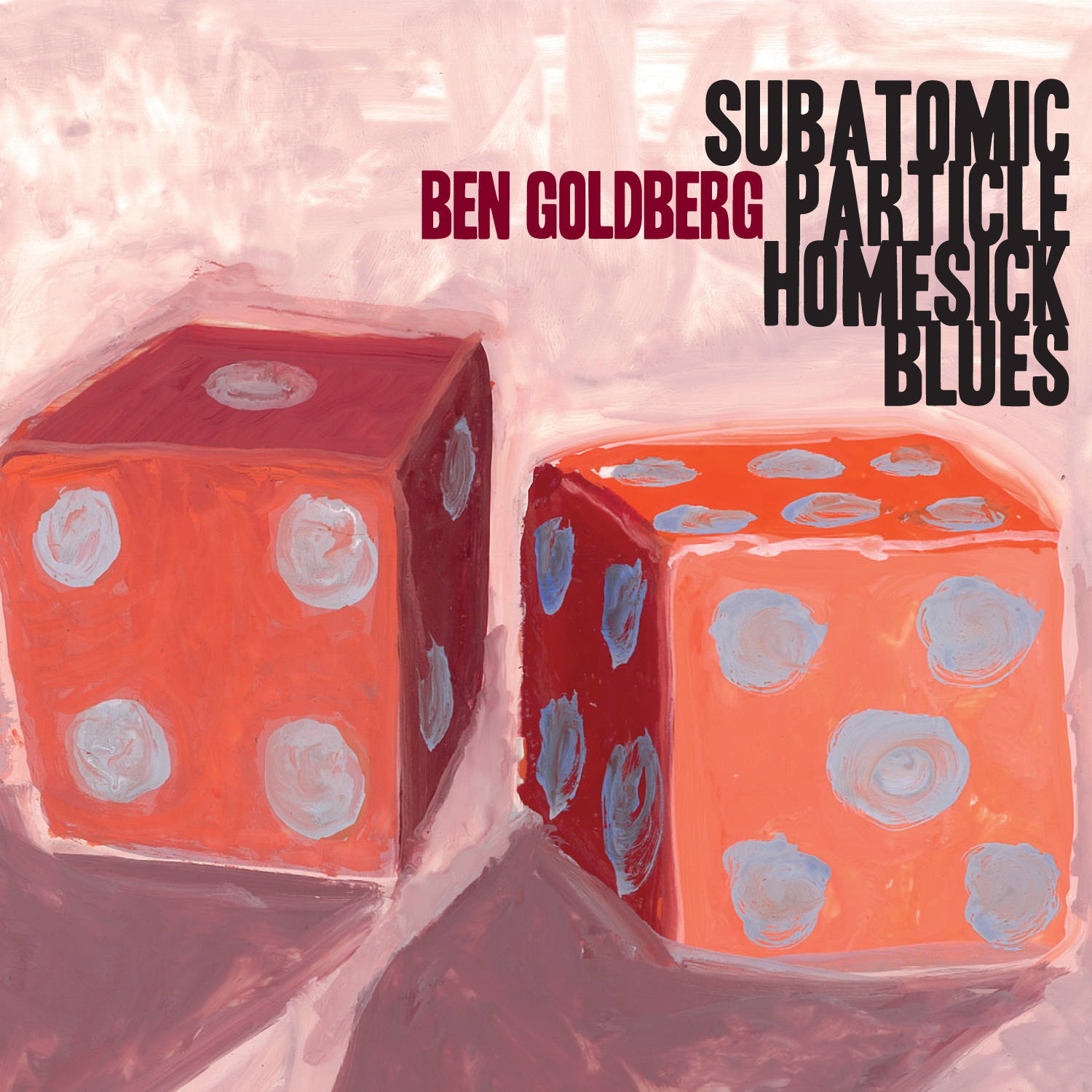
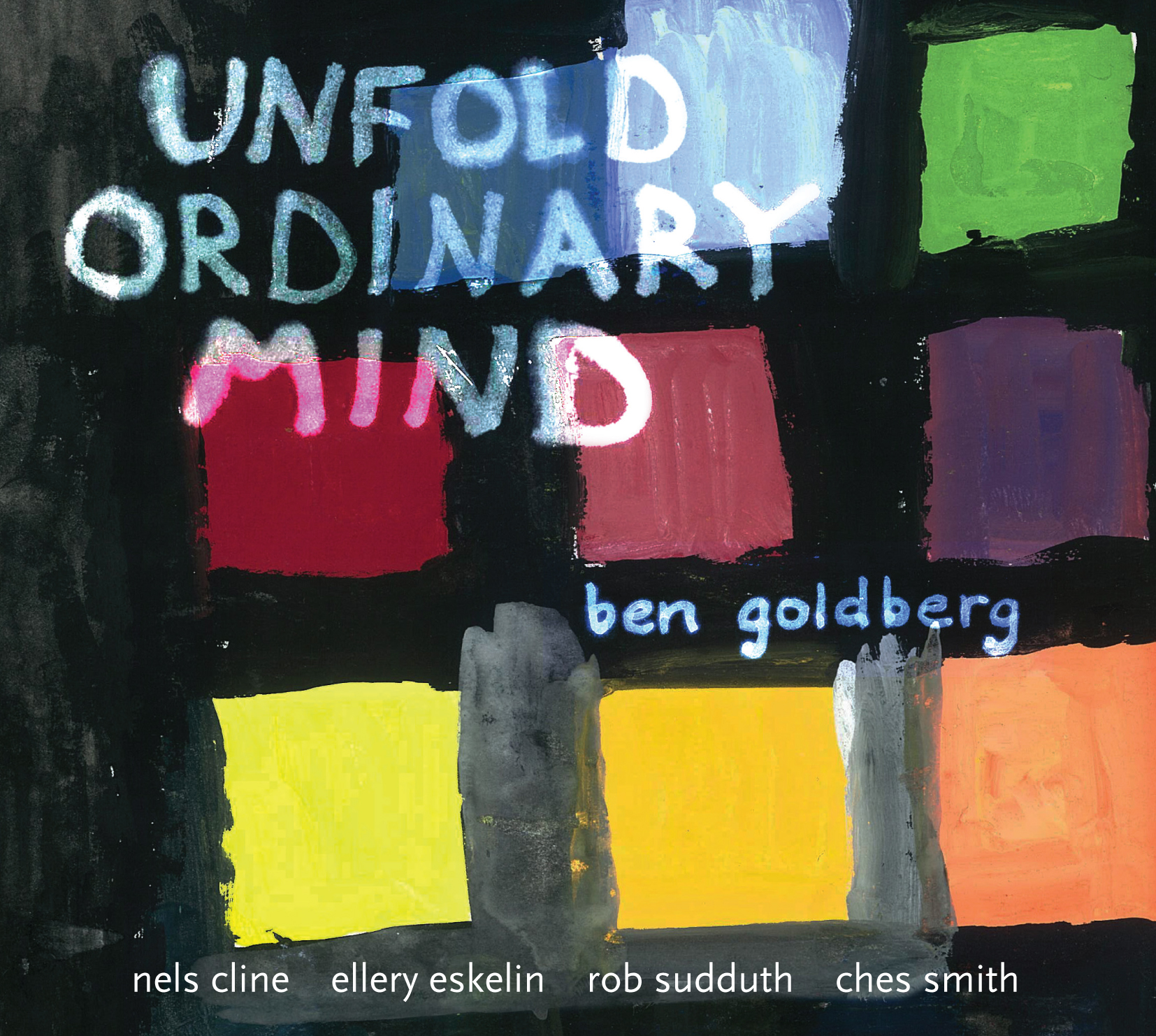
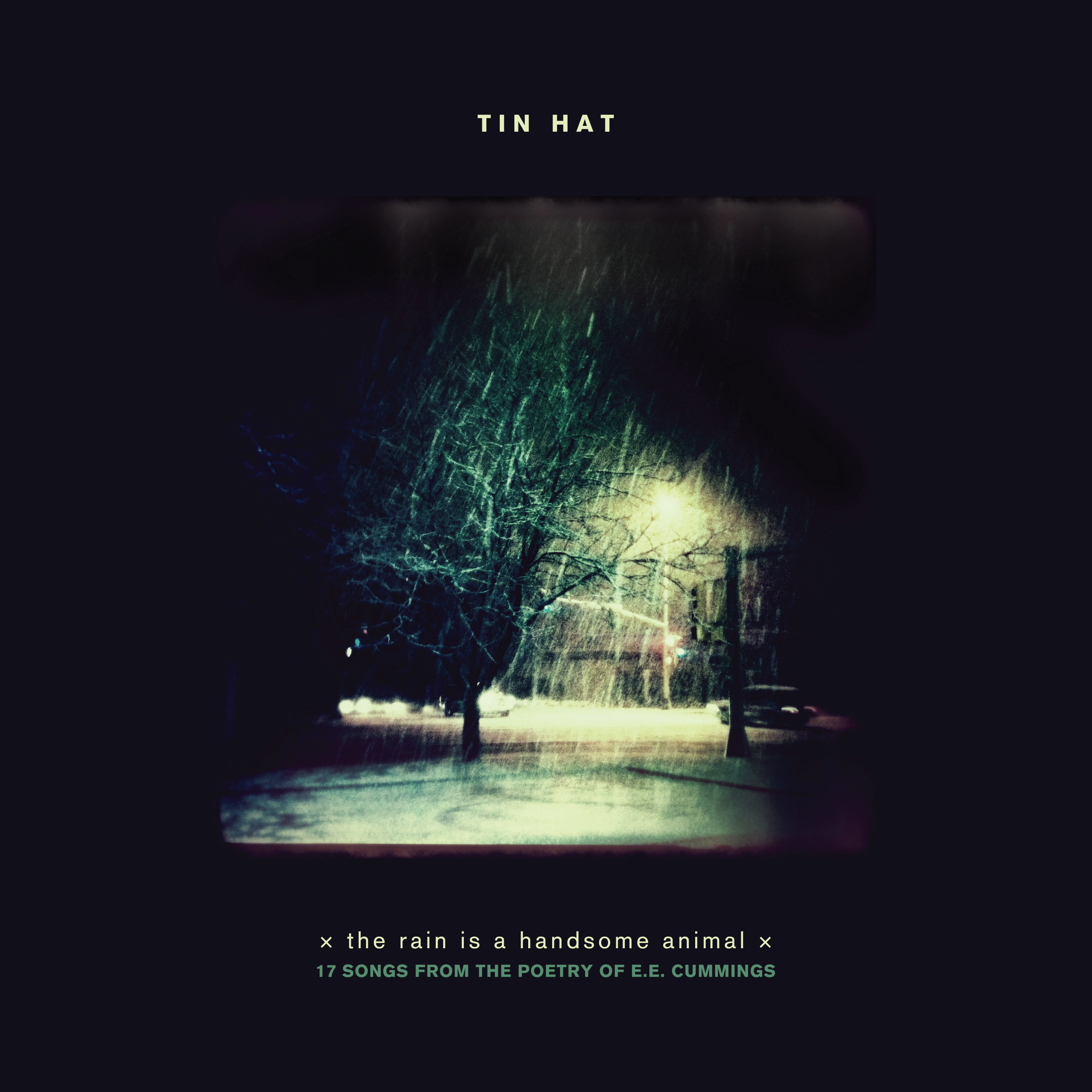
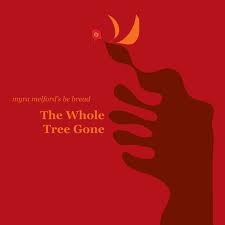

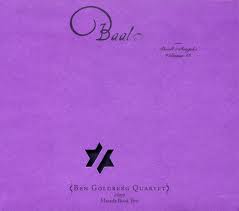




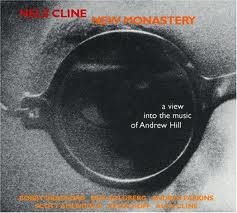



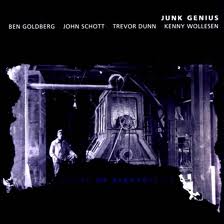


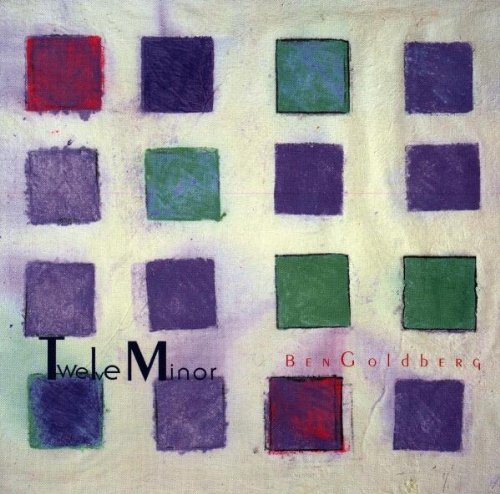

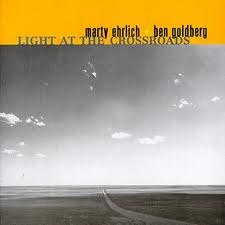

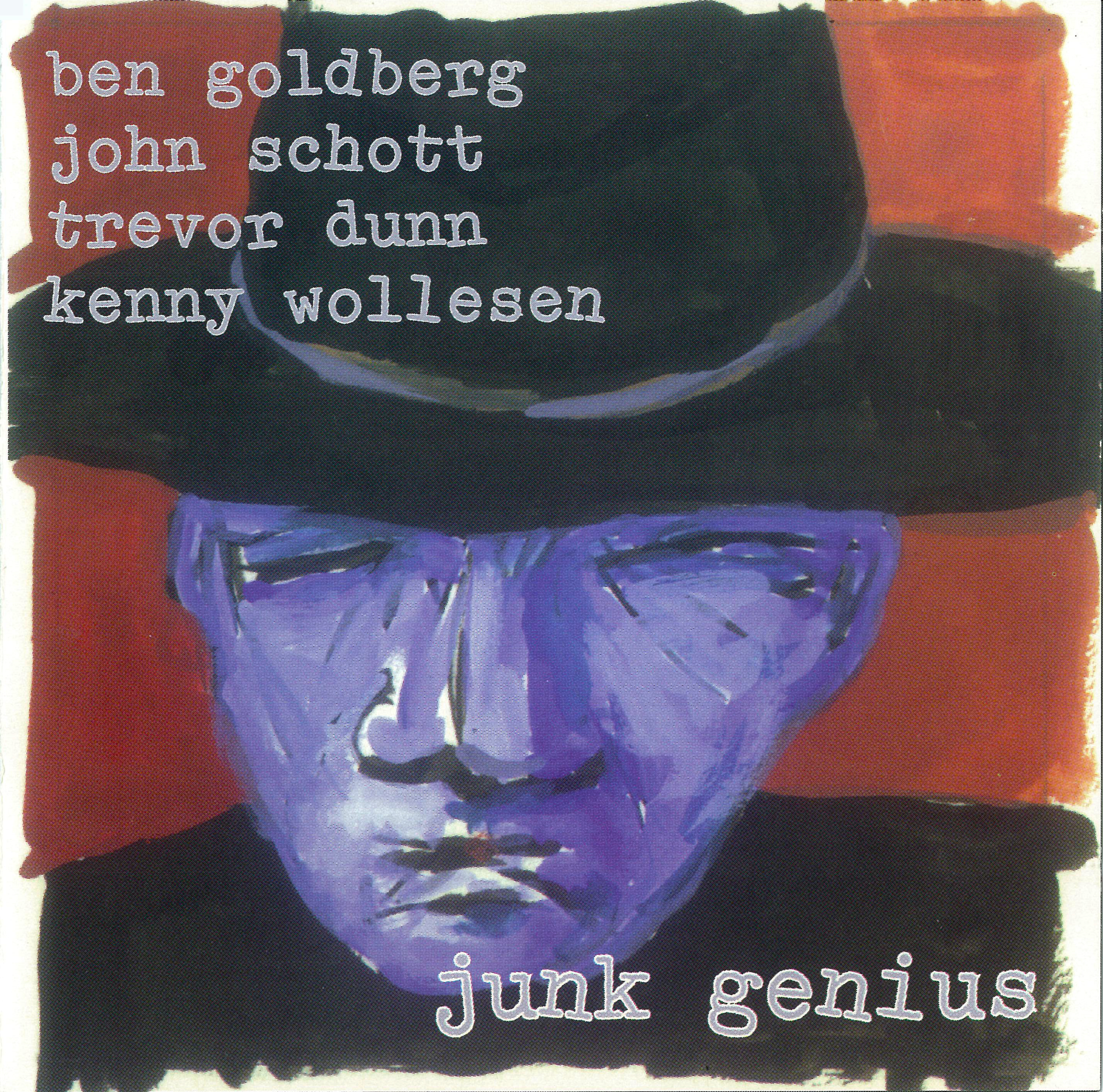
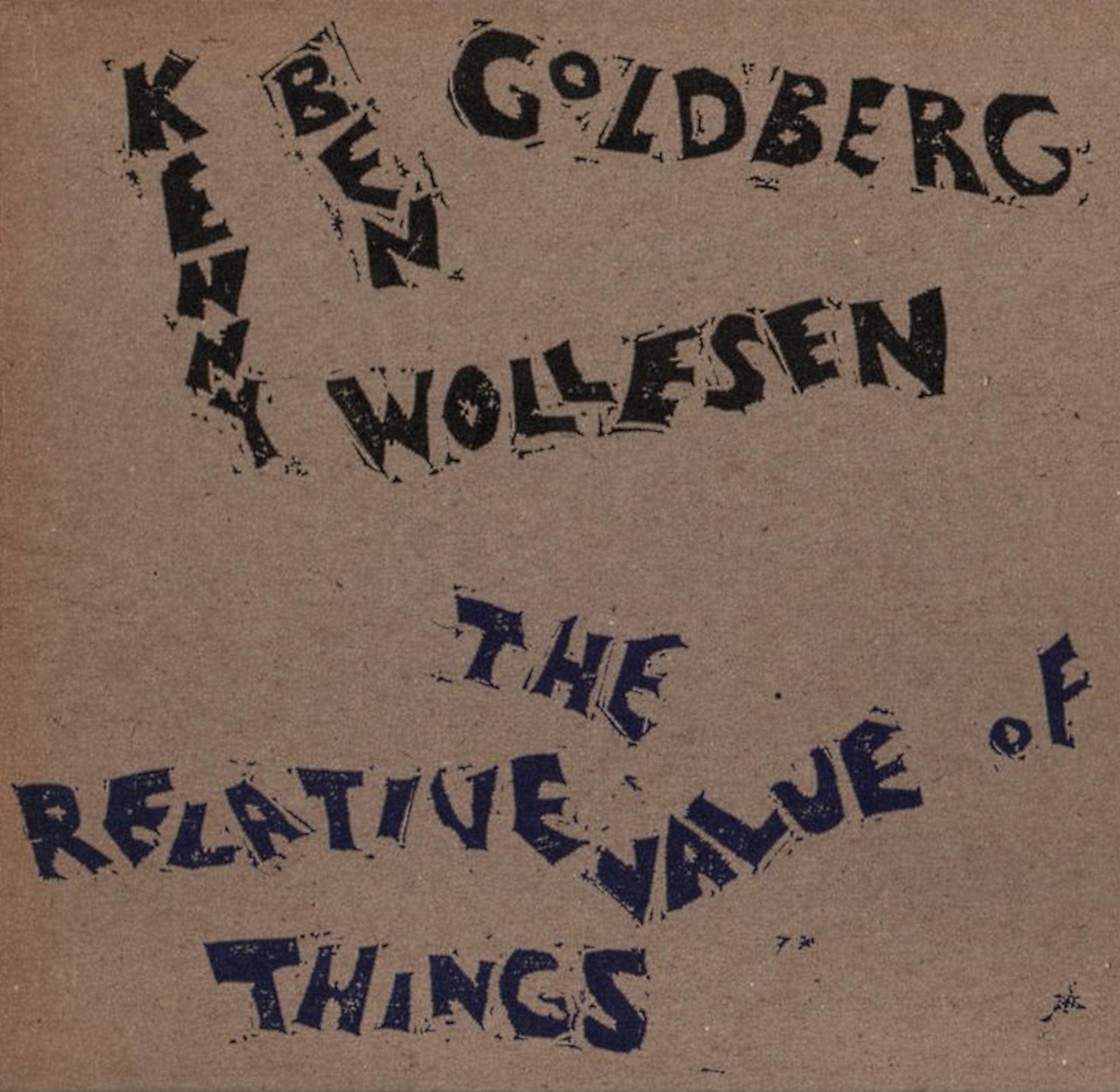
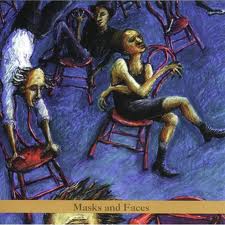

Nema komentara:
Objavi komentar